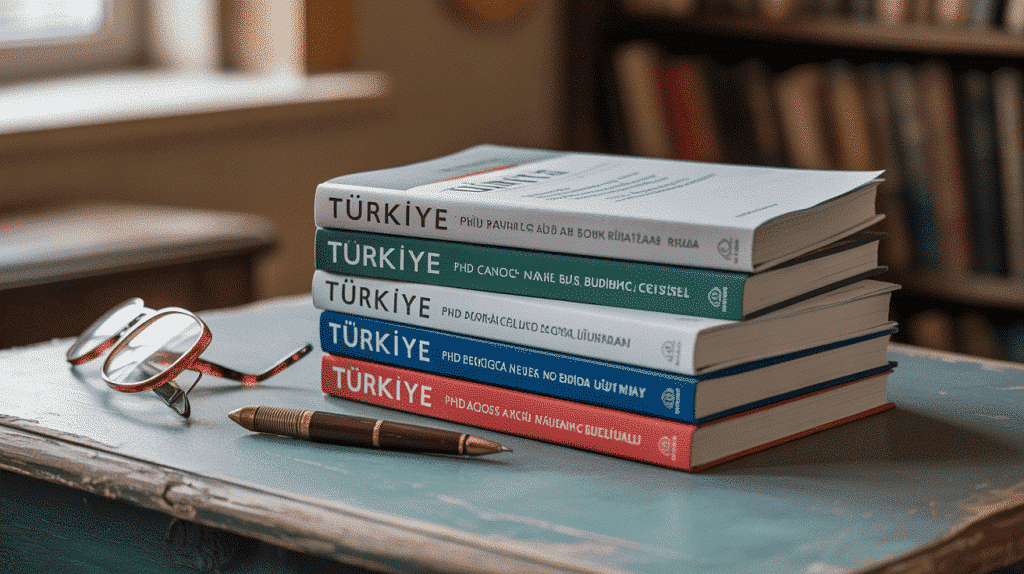Targeting Journals and Conferences for Publishing Your PhD Research in Turkiye
Turkish Academic Journals
Turkiye is home to several respected academic journals across various disciplines, making it imperative for PhD researchers to identify those that align with their research focus. Some notable examples include:
TÜBİTAK Journals
The Scientific and Technological Research Council of Turkiye (TÜBİTAK) publishes numerous high-quality academic journals covering fields such as:
- Agriculture
- Biology
- Botany
- Engineering
- Social sciences
These journals maintain stringent academic standards and provide excellent platforms for disseminating research findings. You can explore further details on their offerings via the TÜBİTAK journals.
The Turkish Research Journal of Academic Social Science (TURJAS)
For researchers focused on social sciences, TURJAS is an excellent choice. The journal publishes original research encompassing a broad range of areas including:
- Demography and social statistics
- Development studies and environmental planning
- Economics and business studies
- Education and linguistics
- Law and social history
- Politics and international relations
- Psychology and sociology
- Science and technology studies
You may read more about their submission guidelines at TURJAS.
Publication Requirements and Processes
Submission Guidelines
When preparing your manuscript for submission to Turkish journals, adhering to specific guidelines is critical:
- Language: Most journals accept submissions in both English and Turkish.
- Author Registration: Manuscripts must typically be submitted by one of the authors following registration.
- File Formats: Common formats include Microsoft Word (.doc, .docx).
- Length: Some journals may not impose page limits, while others do. Refer to individual guidelines for specifics.
Peer Review Process
Turkish academic journals generally follow a robust peer review process, which typically includes:
- Initial Editorial Screening: This initial step assesses basic suitability and compliance with submission guidelines.
- Double-Blind Review: Submissions are reviewed by at least two referees holding doctoral qualifications, ensuring that the identity of both authors and reviewers remains confidential.
- Timeframe: Review timeframes typically aim for completion within 60 days, though this may vary among journals.
For further insights, you can review the specifics of the peer review process at TURJAS.
Disciplinary Focus
Agriculture and Food Science
The Turkish Journal of Agriculture – Food Science and Technology (TURJAF) specializes in publishing research related to agriculture and food science technologies. Starting January 2025, this journal will be expanding its offerings by publishing 30 articles per issue.
Marketing Research
The Turkish Journal of Marketing Research (TUJOMR) is an internationally recognized, online, open-access journal that accepts studies in both English and Turkish. This journal focuses on all aspects of marketing science and welcomes various types of contributions including empirical research and case studies. You can explore more about their submissions at TUJOMR.
Interdisciplinary Research
For those engaged in interdisciplinary research, journals like Diyâr provide platforms for cross-disciplinary scholarship, accepting contributions in multiple languages including English, German, and French. More information is available at Diyâr.
Publication Ethics
Maintaining high publication ethics is paramount for Turkish academic journals:
- COEP Compliance: Journals adhere to the Committee on Publication Ethics (COPE) guidelines.
- Plagiarism Policies: Strict policies to prevent plagiarism are in place. Full credit to all sources used is required.
- Ethical Research Conduct: Researchers must ensure full disclosure of sources and ethical practices in research.
Publishing Costs and Considerations
Some journals in Turkiye do have publication charges, which may cover:
- DOI Application Charges
- Internet Hosting Expenses
- Personnel Costs
However, many journals continue to be free of charge for authors, particularly in the social sciences. Refer to individual journals for specifics on their fees.
Conclusion
In conclusion, by targeting appropriate Turkish journals that align with your research focus, you can effectively disseminate your PhD research findings to the academic community while building your scholarly reputation in Turkiye’s dynamic academic environment.
As you plan your academic journey in Turkiye, consider connecting with Study in Turkiye, your go-to platform for guidance on education, research opportunities, local universities, and more. Our extensive knowledge about the educational landscape here can help you navigate your path to success.
If you’re a university admissions team, HR professional, or student recruitment agency looking for collaboration, reach out to us to explore partnership opportunities. Together, we can foster a rich academic future for international students in Turkiye.
Take the Next Step with Study in Turkiye
Explore further to elevate your academic journey in Turkiye!

